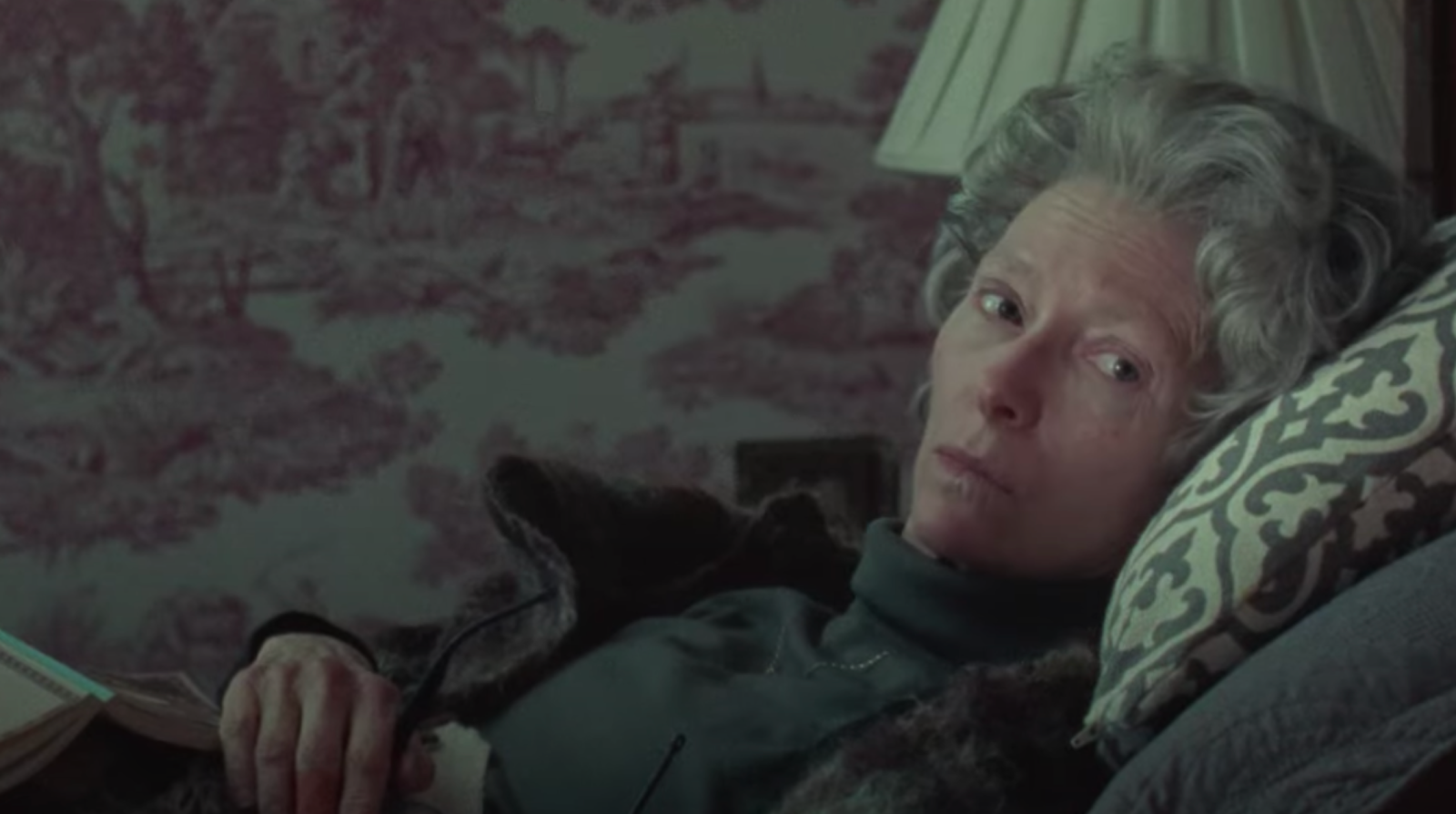There is something so delicate and haunting about the nature of Joanna Hogg’s The Eternal Daughter, her new movie that balances elements of her previous meta-textual work in her ongoing memoirist series of recent films with a ghost story genre element. Not only is this a film whose elements each in their own turn create a world of beauty and pain, but it is also a deeply emotional piece of work whose ability to creep up on one and effect them sincerely should not be lost in the swell of the ‘gimmick’ nature of some of its choices. Afterall once one has actually seen the film, no word seems more distasteful than ‘gimmick’.
There is a self-reflectiveness of Hogg’s recent work that is compelling on an intellectual level as much as it is on an emotional one, perhaps no film in this recent trilogy is more split between the effecting genre elements of its story and the intellectual reckoning with the nature of adopting true into your fiction and the base emotionality of this familial tale. Hogg is placing both the story of a mother and daughter within the structure, filmmaking and setting of a gothic ghost story, whilst also having this distinctly female story be informed by the metatextual nature of the aftermath of her pervious films. We follow Tilda Swinton as she plays both mother and daughter, who we come to learn are the same mother and daughter of The Souvenir, with Swinton now portraying both roles rather than just the elder, with this film taking some place in a liminal purgatorial place that seems to move more and more into the symbolic as the piece goes on. The language of the gothic ghostly horror film is one that Hogg implements with such excellence that there is a small part of the viewing audience I feel whom will be disappointed that without spoiling too much, one is not really in for a full horror tale. This is a film that deals with the symbolic and the pain of loss and the haunting nature of memory above any actual ghost sightings or the like. Of course Hogg’s tender screenplay reveals itself to contain great pain, regret and fear in a way that completely takes one for a gut punch, punctuated by a single static shot that the film has without our knowledge (or perhaps slightly with) been building up to this entire time. Hogg’s direction of this film is sensational and the cinematography of Ed Rutherford is so composed and granular that it really does feel like the most comforting and creepily soft of fireplace tales, again lulling us into a sense that the heart of this tale will be an apparition rather than the ghostly nature of loss and the pain of it.
The film does
indeed have Swinton portray both roles and in the film-making Hogg never
attempts to avoid us of that notion, we are mostly in single frames and ‘easy’
static shots where the doubling is handled with ease and little smoke and
mirrors. The power of Swinton’s performance and the intentionality of Hogg’s
choices here come to pass that the doubling is the films central impactful core
and is the heart of the tale. Swinton is astounding and soft and pained in both
of her performances that inform, mirror and refract each other in the most
subtle and perfect of ways. There is such minuscule details that make each individual
clear and distinct, with some truly great makeup work for the mother figure
that makes it all the more believable. Beyond Swinton the film also stars two incredible
supporting turns with Carly-Sophia Davies and Joseph Mydell as two workers of
the hotel where the film is set. Davies from the off really is the perfect
awful service industry individual who can’t abide her job anymore and has a seeming
distain for all who meet her, she’s darkly hilarious and a true highlight.
Mydell’s turn is a lot softer and in his reflections of his widowing we find a series
of comforting scenes of sadness and love that one really does grow effected by.
Hogg has with this three person trio crafted a chamber piece that does have the
spookiness it prescribes, but above all else has the emotional wallop of any of
Hogg’s best features.
The nature of Hogg’s 9/10 tender pseudo ghost story is ever changing throughout its runtime and although what at first may seem obvious or symbolic could seem surface level, the depth of this piece and how it reveals itself is something unto itself entirely. I don’t know if this film is lower than a 9/10 at current, perhaps repeat watches may take it that way, afterall as I pen this review, I don’t particularly have anything negative to say on the actual body of this beautiful film. Perhaps there is a slightness about it that takes it down for me, however at current I can’t help but feel that this film is a perfect and ultimately very emotional little gothic tale.
P.S. I think I have a favourite genre that I didn’t even realise of ghost stories that aren’t exactly ghost stories, I mean a triple bill of this, then Hitchcock’s Rebecca, concluding with the masterpiece that is Andrew Haigh’s 45 Years and you may have an all-timer movie three on your hands. For me at least that is.
- - Thomas Carruthers




0 Comments